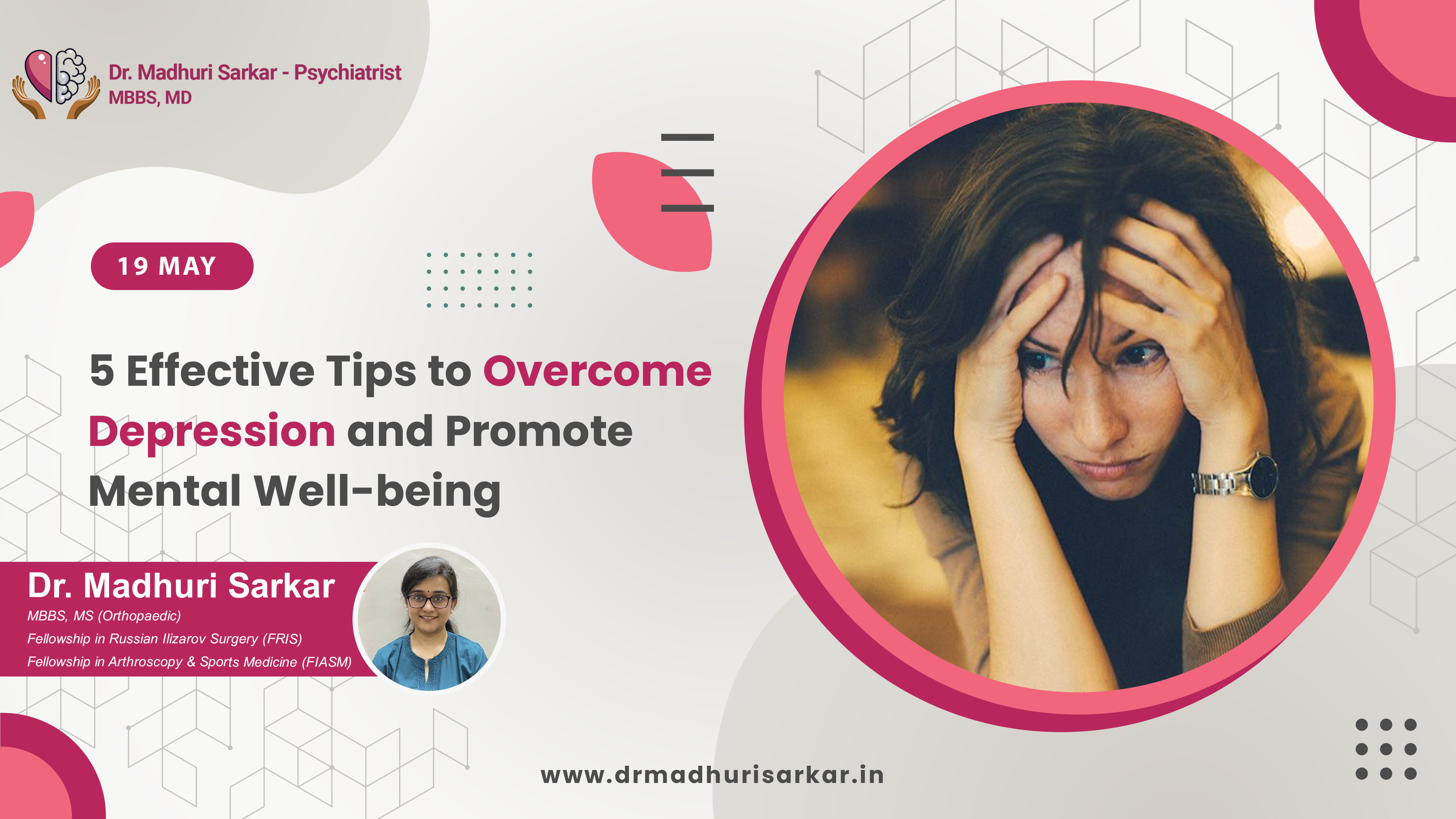
Introduction: Depression is a challenging and complex condition that affects millions of people worldwide. While it's important to seek professional help, there are several strategies you can incorporate into your daily life to support your mental well-being. In this blog post, we will explore five effective tips that can help you overcome depression and promote a more positive and fulfilling life. Seek Support: One of the most crucial steps in overcoming depression is reaching out for support. Share your feelings and experiences with someone you trust, such as a close friend, family member, or mental health professional. Talking about your emotions can alleviate the burden and provide a fresh perspective. Additionally, consider joining support groups where you can connect with individuals who understand what you're going through. Establish a Healthy Routine: Depression often disrupts regular daily routines, making it challenging to accomplish even basic tasks. Establishing a structured routine can provide a sense of stability and purpose. Start by setting small, achievable goals and gradually increase their complexity. Break tasks into manageable steps to prevent overwhelming feelings. Focus on incorporating activities that you enjoy, such as exercise, hobbies, or spending time in nature. Engaging in self-care is crucial during this process. Practice Self-Care: Self-care plays a significant role in managing depression. Allocate time each day for activities that nurture your mind, body, and spirit. This could include practicing mindfulness or meditation, engaging in physical exercise, getting enough sleep, maintaining a healthy diet, or pursuing creative outlets. Remember, self-care is not selfish; it's an essential part of your overall well-being. Challenge Negative Thoughts: Depression often brings about negative and self-deprecating thoughts. Learning to identify and challenge these thoughts is a crucial step toward overcoming depression. Practice self-reflection and mindfulness to become aware of negative patterns. Once you notice negative thoughts, question their validity. Are they based on evidence or distorted perceptions? Replace negative thoughts with positive and realistic affirmations. Cognitive-behavioral therapy (CBT) techniques can be particularly helpful in this process. Engage in Meaningful Connections: Human connections are vital for our mental well-being. While depression may make you want to withdraw from social activities, it's essential to foster meaningful connections. Surround yourself with supportive and understanding individuals who uplift your spirits. Participate in social events, join clubs or organizations aligned with your interests, or volunteer for a cause that resonates with you. Sharing experiences and connecting with others can help combat feelings of isolation and strengthen your support network. Conclusion: Overcoming depression is a journey that requires time, patience, and a multifaceted approach. While these tips can provide a starting point, it's important to remember that professional help is invaluable. Reach out to a mental health professional who can provide personalized guidance tailored to your specific needs. Remember, you are not alone, and there is hope for a brighter future.